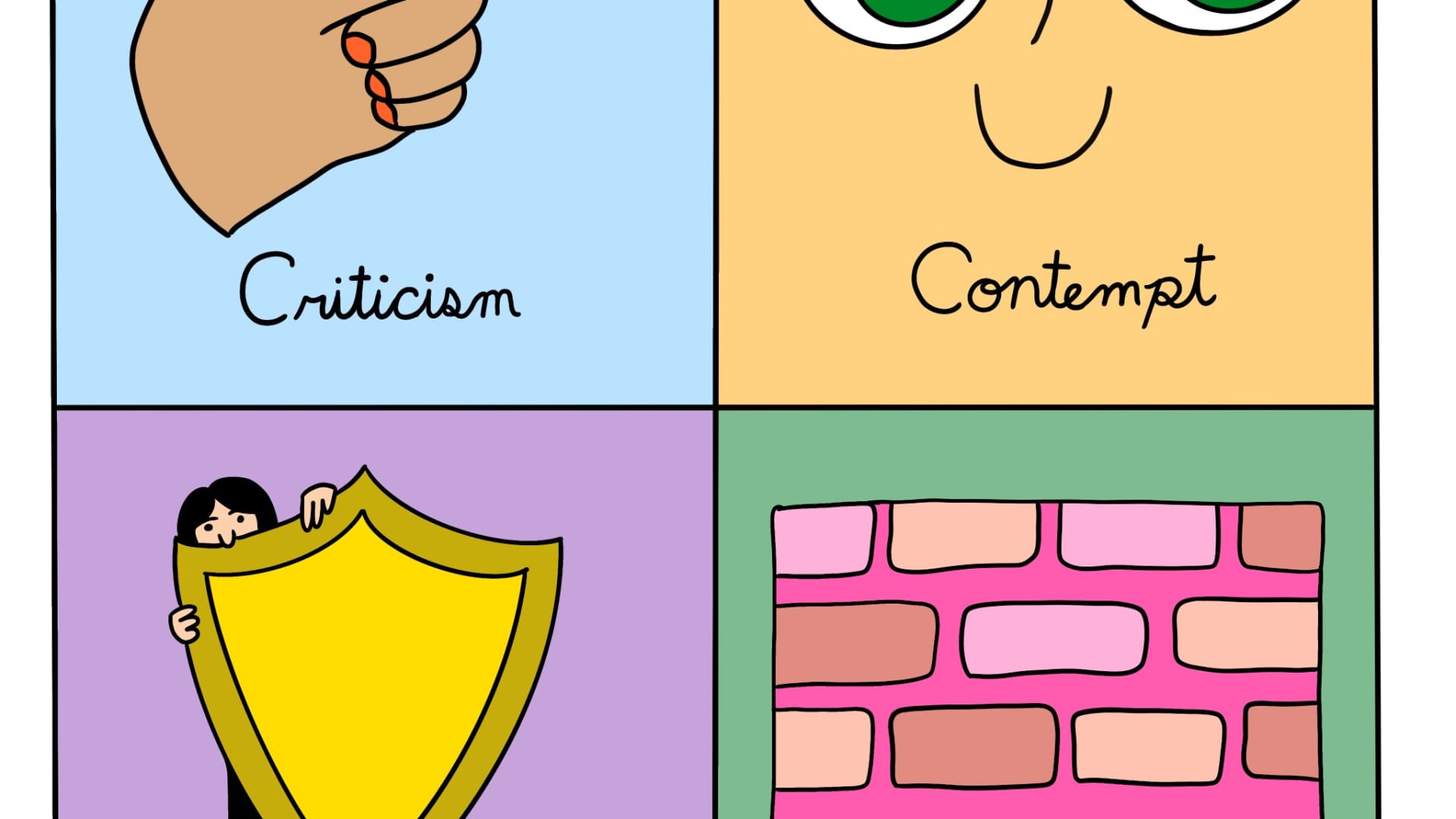
In our 50 years working as psychologists, we've studied more than 40,000 partners about to start couples therapy.
Not only has our research helped us stay happily married to each other for 35 years, it's also taught us how to identify when a relationship is headed towards disaster.
In one study, we were able to predict with 94% accuracy whether or not a relationship would last — after observing a couple for just 15 minutes.
Ultimately, we've found that there's one thing successful couples never do: take each other for granted.
Get DFW local news, weather forecasts and entertainment stories to your inbox. Sign up for NBC DFW newsletters.
A lack of appreciation can destroy a relationship
Saying "thank you" helps, but building a culture of appreciation requires much more than that. You must actively look for what your partner is doing right. Find the good that's been hidden and overlooked, and point it out.
We've seen so many couples struggle with this. They focus on everything that their partner is doing wrong and criticize each other for it.
Money Report
When couples caught in this negative spiral, the relationship breakers that we call the "Four Horsemen of the Apocalypse" come galloping.
Watch out for the 'Four Horsemen of the Apocalypse'
Each horseman represents a communication style that increases the likelihood of a divorce or breakup. Identifying and then stopping them can help you have a healthier, stronger relationship:

1. Criticism
When you criticize, you attack your partner's character: "You don't care about anyone else's time. You're so selfish."
It's different than making a complaint, which is more like: "I'm upset that you're 30 minutes late. I wish you'd call me sooner to let me know."
How to fix it: During frustrating situations, you can complain, but don't blame your partner for everything that went wrong. Use "I" statement to focus on how you feel and let them know what you need.
2. Contempt
Contempt is the No. 1 predictor of divorce. This communication style is fueled by long-held beliefs that your partner is morally inferior to you. When you act with contempt, you're being mean on purpose.
You may mock them with sarcasm, imitate them, call them names, or use dismissive body language like eye-rolling or scoffing.
How to fix it: Positive thoughts turn into positive feelings, which in turn become positive actions. So, tune into your admiration for your partner. Make a list of things you like about them. Think about your favorite memories together, and let them know you appreciate them.
3. Defensiveness
Defensiveness is an unproductive response to criticism. You want to get our partner off your back, so you dig for excuses, play the victim, and turn the blame onto them.
For example, if your partner asks if you took the garbage out, a defensive response might sound like: "You know how tired I am after work. I can't believe you're asking me about this. It's because I'm so lazy, right? Why can't you do it?"
How to fix it: Try to understand your partner's perspective and accept responsibility for your actions. For the above example, you could say: "You know what? I came home and completely forgot to take the trash out. I'm sorry, I know we agreed I'd do that. I'll do it now."
4. Stonewalling
Rather than engaging in conflict, you might tune out, ignore your partner, or even physically remove yourself from the conversation.
It takes time to reach the point where you feel the need to stonewall your partner. But once you start, it can be hard to stop.
How to fix it: Rather than just walking away, you could say: "I feel too angry to talk about this. Can we take 15 minutes to calm down?" Go into a different room and do something relaxing like reading or meditating, then come back to the conversation.
Dr. John Gottman and Dr. Julie Schwartz Gottman are the co-founders of The Gottman Institute and Love Lab. Married for over 35 years, the two psychologists are world-renowned for their work on relationship stability and divorce prediction. They are also the co-authors of "The Love Prescription: Seven Days to More Intimacy, Connection, and Joy" and "10 Principles for Doing Effective Couples Therapy." Follow The Gottman Institute on Instagram and Twitter.
Don't miss:
- Harvard-trained psychologist: If you use any of these 9 phrases every day, ‘your relationship is more successful’ than most
- Here's the No. 1 thing that makes relationships successful, say psychologists who studied 40,000 couples
- 'Yes, marry for money': A top economist shares the surprising financial benefits of marriage
Want to be smarter and more successful with your money, work & life? Sign up for our new newsletter!






